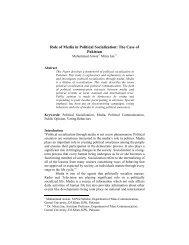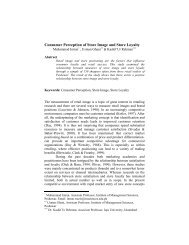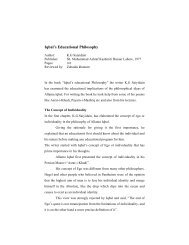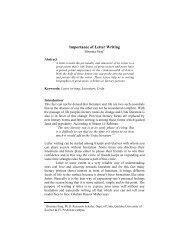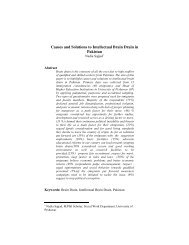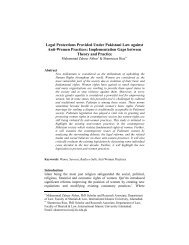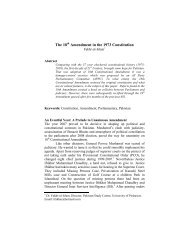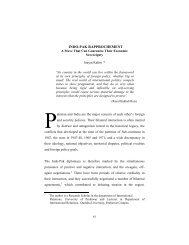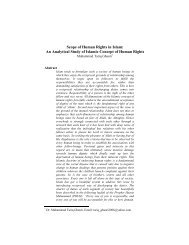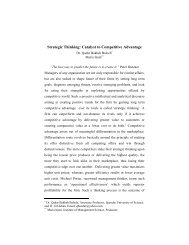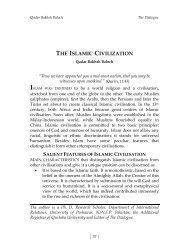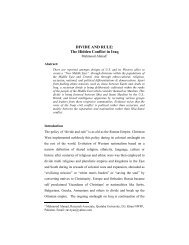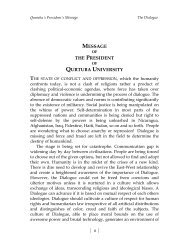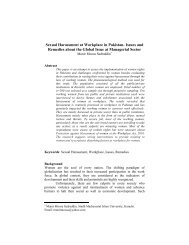COLD WAR POLITICS OF SUPERPOWERS IN SOUTH ASIA Abstract
COLD WAR POLITICS OF SUPERPOWERS IN SOUTH ASIA Abstract
COLD WAR POLITICS OF SUPERPOWERS IN SOUTH ASIA Abstract
You also want an ePaper? Increase the reach of your titles
YUMPU automatically turns print PDFs into web optimized ePapers that Google loves.
installations. The Soviet leaders were annoyed and Soviet Primer Khrushchev<br />
abused Pakistan during the address to the Supreme Soviet on May 7, 1960 and<br />
stated: “We warn those countries that make their territory available for<br />
launching planes with anti-Soviet intentions: however, if these governments<br />
did not know---and I allow in this case they were not informed---they should<br />
have known what the American military was doing on their territory against<br />
the Soviet Union.” 90 On another occasion in a reception at Czechoslovakia’s<br />
embassy on 9 May 1960, in Moscow, Khrushchev called Ambassador Salman<br />
Ali of Pakistan, and bluntly told him: “Peshawar has been marked on our map.<br />
In the future, if any American plan is allowed to use Peshawar as base<br />
operations against the Soviet Union, we will retaliate immediately−and have<br />
to aim our rockets at your bases as well.” 91<br />
In June 1969, President Brezhnev introduced an Asian Collective Security<br />
System 92 and its context was one of strong Soviet hostility to China. The<br />
Soviet, in floating the idea, mentioned a number of possible members-<br />
Afghanistan, Burma, Cambodia, India, Pakistan and Singapore, which may<br />
have been a random selection. It was interesting that Afghanistan had no<br />
territorial link with China but shared with India a common antagonism to<br />
Pakistan. However, most Asian governments appear to have reacted coolly or<br />
at least did not warmly welcome the idea of ‘collective security’. Pakistan<br />
rejected Brezhnev’s call for ‘collective security system’ and it also turned<br />
down Kosygin’s (1969) proposal for regional economic cooperation by India,<br />
Pakistan, Afghanistan and Iran. 93 Pakistan made it clear that development of<br />
economic cooperation with India was contingent on the resolution of<br />
outstanding political issues, including Kashmir. 94<br />
During 1969-71 Pakistan was in serious political turmoil because the people of<br />
the eastern wing were demanding autonomy and Pakistan’s elites considered<br />
that the demand of rights from the eastern wing was a challenge to the<br />
95



